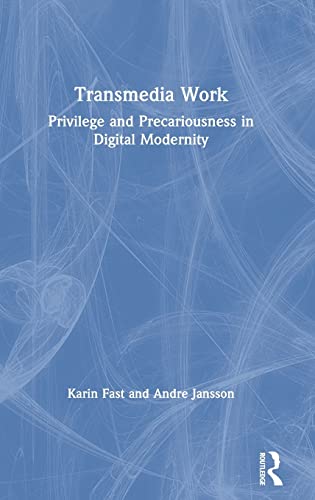

Most ebook files are in PDF format, so you can easily read them using various software such as Foxit Reader or directly on the Google Chrome browser.
Some ebook files are released by publishers in other formats such as .awz, .mobi, .epub, .fb2, etc. You may need to install specific software to read these formats on mobile/PC, such as Calibre.
Please read the tutorial at this link: https://ebookbell.com/faq
We offer FREE conversion to the popular formats you request; however, this may take some time. Therefore, right after payment, please email us, and we will try to provide the service as quickly as possible.
For some exceptional file formats or broken links (if any), please refrain from opening any disputes. Instead, email us first, and we will try to assist within a maximum of 6 hours.
EbookBell Team

5.0
90 reviewsIn Transmedia Work¸ Karin Fast and André Jansson explore several key questions that frame the study of the social and cultural implications of a digital, connected workforce.
How might we understand ‘privilege’ and ‘precariousness’ in today’s digitalized work market? What does it mean to be a privileged worker under the so-called connectivity imperative? What are the social and cultural forces that normalize the appropriation of new media in, and beyond, the workplace? These key questions come together in the notion of transmedia work – a term through which a social critique of work under digital modernity can be formulated. Transmedia work refers to the rise of a new social condition that saturates many different types of work, with various outcomes. In some social groups, and in certain professions, transmedia work is wholeheartedly embraced, while it is questioned and resisted elsewhere. There are also variations in terms of control; who can maintain a sense of mastery over transmedia work and who cannot?
Through interviews with cultural workers, expatriates, and mobile business workers, and ancillary empirical data such as corporate technology and coworking discourse, Transmedia Work is an important addition to the study of mediatization and digital culture.